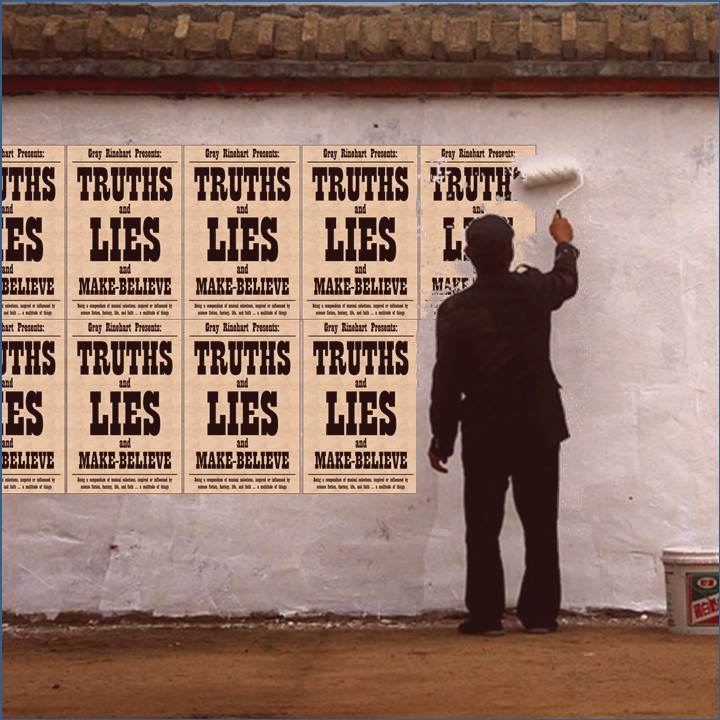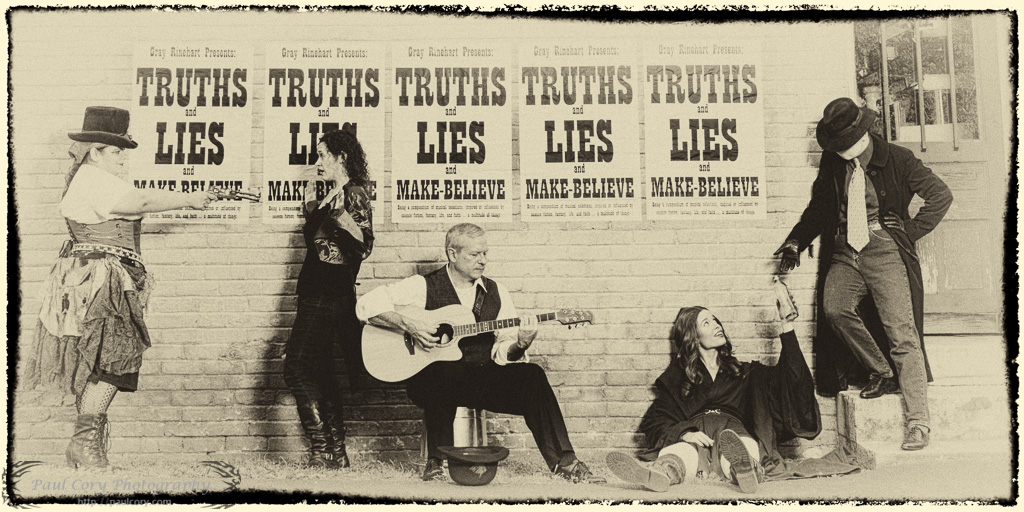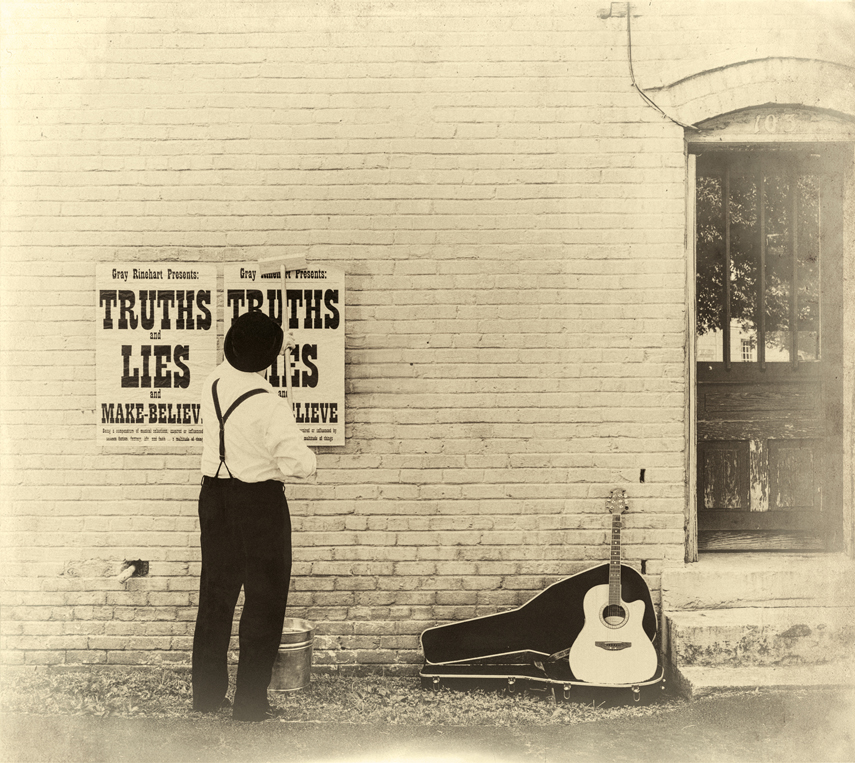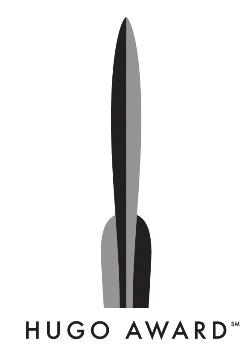Being a person of little influence, I did not publish my Hugo Award nominations or recommendations before the deadline. Very few people would have been interested.
I’m publishing them now because they seem to make a nice counterpoint to some of the controversy surrounding the awards. Plus, they give me a jumping-off point for looking at three ideas the World Science Fiction Society and World SF Convention might consider. Or not. I’m just another voice in the electronic wilderness, after all.

(“Idea Pirate Flag,” by Richard Winchell, on Flickr under Creative Commons.)
Fair warning: This will be a long post. Much longer than my usual posts, I’m afraid. Feel free to skim, or skip, or just go back and read about my nominated story.
The Nominations. I am sorry to say that few of my picks ended up on the Hugo Awards ballot. I don’t generally nominate according to recommendations, even when the cause is to remedy “Puppy Related Sadness,” and I suspect the same is true for most people I know. And unfortunately, my time being increasingly precious these days my pleasure reading is often limited to works by friends of mine. I don’t offer that as justification or excuse, it’s just how it is. I nominate what I’m familiar and comfortable with.
If you didn’t get the “Puppy Related Sadness” reference, see this blog post by Larry Correia, which was part of the first round of what became the “Sad Puppies” campaigns to encourage his fans to purchase WorldCon memberships, nominate, and vote for the Hugo Awards. We are now in round three, abbreviated SP3, this time coordinated by Brad Torgersen; and I believe I am quite honest in my assessment when I say that without Brad and Larry calling attention to my story, in all likelihood it would not be among the Hugo finalists. I’ll reference the “Sad Puppies” controversy throughout this post, including as I discuss my nominations.
How far off were my picks? Let’s look at the professional literary categories.
My nominations for Best Professional Editor (Long Form) were:
- Tony Daniel
- Jim Minz
- Toni Weisskopf
What can I say? I work with all of them in my supporting role as a Contributing Editor for Baen Books, and I know they know their stuff. If one day I am fortunate enough to have a publisher buy a novel of mine, I would happily work with any of them (hint, hint); but if I got the opportunity to work with another editor at some other publisher, I would probably nominate that person, too.
The actual 2015 lineup in this category, with 712 nominating ballots counted, includes Vox Day, Sheila Gilbert, Jim Minz, Anne Sowards, and Toni Weisskopf. My score: 2 out of 3, both of whom were on the “Sad Puppies” list.
My nominations for Best Professional Editor (Short Form) were:
- Jennifer Brozek
- Trevor Quachri
- Bryan Thomas Schmidt
- Edmund Schubert
- Sheila Williams
Surprise, surprise — here I also nominated people with whom I’ve worked. Each of them has been my editor, in one form or another, and I respect them all. The 2015 category lineup, with 870 nominating ballots, consists of Jennifer Brozek, Vox Day, Mike Resnick, Edmund R. Schubert, and Bryan Thomas Schmidt. My score: 3 out of 5, all of whom were on the “Sad Puppies” list.
My nominations for Best Related Work were:
- Letters from Gardner, Lou Antonelli (Merry Blacksmith Press)
- “Lockstep: A Possible Galactic Empire,” Karl Schroeder (Analog)
- Science in Sci-fi, Fact in Fantasy, Dan Koboldt (http://dankoboldt.com/science-in-scifi/)
- “Spanking Bad Data Won’t Make Them Behave,” Michael F. Flynn (Analog)
- “Why Science is Never Settled,” Tedd Roberts (Baen.com)
Here, you might get the impression that I like the science fact articles in Analog — and you’d be right. What you may not get is that Dan Koboldt and Tedd Roberts are friends of mine, Lou Antonelli is an acquaintance, and I think they do fine work. The 2015 Hugo nominees in this category, with 1150 nominating ballots, include works by Ken Burnside, Lou Antonelli, John C. Wright, Tedd Roberts, and Michael Z. Williamson. My score: 2 out of 5, both of whom were on the “Sad Puppies” list.
My nominations for Best Short Story?
- “Ashes and Starlight,” David Farland (Shattered Shields)
- “First Blood,” Elizabeth Moon (Shattered Shields)
- “The Keeper of Names,” Larry Correia (Shattered Shields)
- “No Lonely Seafarer,” Sarah Pinsker (Lightspeed)
- “Totaled,” Kary English (Galaxy’s Edge)
Controversy must abound here, since most of my favored nominees were stories I enjoyed from a particular anthology that means something special to me — including two by authors personally known to me. The other two are also very good stories by friends of mine, who sent them to me for consideration. But controversy is where you find it. The 2015 Best Short Story nominations, tallied from 1174 nominating ballots, are by Annie Bellet, Lou Antonelli, John C. Wright, Kary English, and Steve Rzasa. My score: 1 out of 5; yes, another on the “Sad Puppies” list.
My nominations for Best Novelette were:
- “Beneath the Ice of Enceladus,” James C. Glass (Analog)
- “Dancing with Death in the Land of Nod,” Will McIntosh (Apocalypse Triptych, Vol 1)
- “Life Flight,” Brad Torgersen (Analog)
- “The Magician and Laplace’s Demon,” Tom Crosshill (Clarkesworld)
- “Mind Locker,” Juliette Wade (Analog)
Can you tell yet that I like Analog stories? And, yes, I know almost all of those authors.
Turns out the 2015 nominations for Best Novelette (with 1031 nominating ballots) are by a guy with my name, plus Edward M. Lerner, Michael F. Flynn, Rajnar Vajra, and John C. Wright. My score: 0 out of 5. Shocking!
I only submitted three nominations for Best Novella:
- Calendrical Regression, Lawrence Schoen (NobleFusion Press)
- “Claudius Rex,” John P. Murphy (Alembical 3)
- “From Earth I Have Arisen,” Matt Rotundo (Alembical 3)
Why only three? Because these fellows are also friends of mine, and sent me their tales to read; and, I didn’t even look at any other novellas from 2014 — not even the ones in Analog. Sue me.
The 2015 Best Novella nominees, based on 1083 nominating ballots, are by Tom Kratman, Arlan Andrews, Sr., and John C. Wright. Mr. Wright, it turns out, has three nominations in this category, which for my money is a little bit ungracious and not very sportsmanlike; had he asked my advice, I would have suggested that he set a new precedent by selecting the best of his stories and declining the other two nominations. But since we’ve never met, alas, my advice remains about as valuable as most advice. (Which is to say, not very.) My score: 0 out of 5. Perhaps I should be outraged? On second thought, I’d rather not; I tend to say things I regret when I am outraged. And sometimes even when I’m not.
And, finally, my nominations for Best Novel were:
- Black Tide Rising (series), John Ringo (Baen)
- The Chaplain’s War, Brad Torgersen (Baen)
- Monster Hunter Nemesis, Larry Correia (Baen)
- A Plunder of Souls, D.B. Jackson (Tor)
- Trial By Fire, Charles E. Gannon (Baen)
Why so many titles from Baen? Aren’t I more widely read than that? Not usually, no. Remember, as a contractor to Baen I’m charged with selecting novels for us to publish so I need to keep up with what our authors are producing. (Yes, I also need to keep up with the field in general. I probably shouldn’t admit this, but I don’t read as many Baen titles as I should, let alone titles from other publishers.)
As it turns out, the 2015 Best Novel nominees (1827 nominating ballots) are by Ann Leckie, Kevin J. Anderson, Katherine Addison, Marko Kloos, and Jim Butcher, though Larry Correia turned down a nomination for MHN. My score: 1 out of 5 until Larry dropped out, then 0 out of 5.
So, all in all, I didn’t do so well on the nominating front.
C’est la vie.
Why, you ask? Why didn’t I nominate everything on the SP3 list? Am I not concerned, do I not want to remediate if not eradicate Puppy Related Sadness?
The simple answer is, I’m not a drone. And I prefer to think that other people are, likewise, not drones: that they are capable of making informed decisions even in the face of strong recommendations from people they like and/or admire. In my most optimistic moments, I think that’s exactly what happened; in my most pessimistic moments, I think that many people straight-voted the SP3 list or the alternate “Rabid Puppies” list without considering other worthy contenders, even though the SP3 organizers encouraged people to read the works and make up their own minds; in my all-too-infrequent realistic moments, I believe the truth is somewhere in the middle.
So, many of the recommendations from the “Sad Puppies” list made it onto the Hugo Awards ballot, including my own novelette. And there has been much weeping and wailing and gnashing of teeth — some of it, my own.
An episode from my youth may illustrate why I cannot muster the enthusiasm to cheer the overwhelming “success” (scare quotes intentional) of the “Sad Puppies” and especially the “Rabid Puppies” program. If you’re tired of this discussion, feel free to skip this next part:
When I was a senior in high school, an arsonist burned down our school: Winyah High School in Georgetown, South Carolina. (Some readers may think the general reaction should have been, “And there was much rejoicing,” but for many if not most of us that was a very dark day.) In response, the school board took the opportunity to plan for a new school, in a new location, and to merge WHS with the crosstown school. I was part of a group that began studying what mascot and color scheme the new Georgetown HS would have. We met; we solicited and came up with ideas; we took the ideas back to our respective schools and let the students vote. And when we came back together, our school’s votes had split among the different options while the crosstown, smaller school’s votes were nearly unanimous in favor of one particular choice, which won the day. Had they coordinated their voting, with encouragement to vote for that single option? Almost certainly. And for those of us whose school had been burned down, and now exists only in memory, disappointing barely scratched the surface of our emotions.
I say all that to say this: When I signed on to the SP3 list — and, yes, I was invited and agreed — I had no inkling that it would see such “success.” I anticipated a few finalists would hail from the list, but that other worthies would join them in every category. I remember well that old feeling of being shut out, the deep disappointment of feeling that my vote and my effort had been wasted, and I had no intention and certainly no wish to leave anyone else in the position. I didn’t, and don’t, think “Sad Puppies” was orchestrated to achieve that effect, and I regret that its “success” came at such a cost. I imagine that is a cold comfort to some of my friends.
Now, having procrastinated too much …
The Ideas. Something I observed during my years in the Air Force and subsequent years in a university setting is that the people who benefit from (or under) a system are often less likely to find fault with it. That is, officers who were promoted, or selected for command billets or other choice assignments, under the extant evaluation and selection systems tended to view the systems pretty favorably: after all, the systems recognized them as promotable or highly qualified — a favorable result — and therefore the systems could be trusted to produce other favorable results. Likewise, professors with tenure rarely complain about the tenure system; the system worked for them, so they are naturally disposed to think of it as a good system, if perhaps a bit onerous. No matter the organizational system, those who benefit from it often do not perceive its faults or look for ways to improve it. I submit that was true for those who benefitted from the Hugo Awards system before the “Sad Puppies” program, and I submit that it is true now for many who benefitted from the “Sad Puppies” onslaught. It is, in my experience, quite natural for this attitude to develop.
N.B.: That does not (I repeat, not) (I-tell-you-three-times, not) mean there is anything nefarious going on in the system, or that the people running the system are engaged in any kind of wrongdoing. Everyone is doing their best. And in general, everyone believes they are doing the right things.
Enough intro. For anyone who’s interested, I present below three ideas to consider for the Hugo Awards. I do not claim them as original, but I also have not scoured the hundreds of Hugo-Award-related blog posts with their thousands of comments to see if they have been put forth by other people. Undoubtedly they duplicate to some degree what others have suggested. I include them here based on the idealistic notion that the Hugo Awards might truly represent more of science fiction and fantasy fandom than simply WorldCon fandom; if, as some have suggested, WorldCon members wish to keep the Hugos to themselves, then these ideas would not apply.
1. Remove the limit of 5 entries per category, and put everything that gets more than 5% on the final ballot. A friend called my attention to a version of this, involving a more complicated scheme, but I think this simple idea would work in terms of inclusivity and ease of implementation. Simply, enlarge the pool of nominated works. Ties for 5th place already allow for a 6th nominee, but why stop there?
The statistics for this year are still being held close by WorldCon until after the awards ceremony, but had this idea been in place last year, there would have been 10 finalists for Best Novel, 13 for Best Novella, 7 for Best Novelette, still only 4 for Best Short Story, 7 for Best Related Work, 10 for Best Editor (Short Form), and 12 for Best Editor (Long Form). To examine just my category, Best Novelette, in more detail, the finalists out of 728 ballots cast would have been:
- “Lady Astronaut of Mars,” Mary Robinette Kowal
- “The Exchange Officers,” Brad R. Torgersen
- “The Waiting Stars,” Aliette de Bodard
- “The Truth of Fact, The Truth of Feeling,” Ted Chiang
- “Opera Vita Aeterna,” Vox Day
- “The Litigation Master and the Monkey King,” Ken Liu
- “Forbid the Sea,” Seanan McGuire
The outcome would probably have been the same — “Lady Astronaut of Mars” was a fine story (if I recall, I placed it 2nd on my ballot) — but what would it have hurt to have included Ken Liu and Seanan McGuire’s stories on the ballot? Or to have included Lauren Beukes, Sofia Samatar, Sarah A. Hoyt, Helene Wecker, and Scott Lynch on the Best Novel ballot? Etc. Is it better for the ultimate award recipients to be counted as the best out of 5 because of an arbitrary cutoff, or as the best out of 7 or 10 or more that met the 5% criterion?
Yes, it would mean more in the voter packet to read. So what? Hugo Award voters like to read, from what I understand. Plus, it’s not as if reading everything in its entirety is a requirement to vote. Folks will read as much as they want of what they want, regardless of anyone enjoining them to consider all the finalists on the merits. (Some friends have even told me that because my story was on the “Sad Puppies” list, they will vote “No Award” for it regardless of any merits it might have, and I suspect some will not read it at all; that’s disappointing, but well within their rights, and I appreciate at least their honesty about it.)
One more “counterfactual,” alternate-history-type scenario to consider with respect to this notion: If there had been no artificial cap of 5 per category, in 2013 there would have been 15 finalists in the Best Novel category, including Monster Hunter Legion by Larry Correia. Again, the outcome might have been the same — my daughter enjoyed Redshirts and suggested that I would, too, though it remains on my ever-lengthening “to be read” pile — but the ballot would have been demonstrably more open, more inclusive. And there might have been a little less Puppy Related Sadness in the world.
2. Establish arrangements for members of other conventions (e.g., Dragon_Con, GenCon, any of the Comic Cons) to receive nominating privileges. I have seen in several places the idea of reducing the price of WorldCon supporting memberships to enlarge the voting pool, and this could be an adjunct to that idea. It need not be limited to large cons, though at first they may be the most able to implement it.
Again, this would only apply if WorldCon wished to invite other con-goers to participate. Other conventions might have the choice between automatically enrolling all of their members or establishing a separate “Hugo Nominations” or “WorldCon Partner” membership with a nominally higher price, perhaps as low as $10 or even less, an amount that would be passed through to WorldCon. At the partner conventions, mentions in program books and at opening and closing ceremonies, plugs during literary and other panels, and later direct e-mail contact would serve to make more fans aware of the Hugo Awards and what they represent.
If Dragon_Con, for instance, became a “WorldCon Partner” at only $5 a head, WorldCon would get a cool quarter-million dollars. And if these were “nominating only” memberships, WorldCon could still sell full supporting memberships that conferred the right to vote on the nominated finalists.
I have no idea how many members of other conventions would nominate under such a program. I get the impression that some of the serious fen at WorldCon might dislike the idea of allowing more casual fans to submit nominations, especially if they might prove susceptible to outside influence. But it could make an interesting pilot program for a few years, to see if it gained any traction and had any impact.
3. Restrict professional publishing employees from in-house nominating. With respect to my nominations above, I pointed out that several were for Baen Books personnel or publications, and that I have a professional relationship with Baen as a consulting editor. I see no reason to be coy about that, to wink or pretend otherwise; indeed, I consider it quite natural that I would be more aware of and even more appreciative of Baen’s people and products than I am of other publishers’. I suspect the same is true of those who are employed by or work closely with other publishing houses, specific magazines, etc.
That is not to say that we do not read what other publishers produce; we do, though maybe not as much as we would wish. (You can take that as the “royal we” if you don’t like me speaking for other people.) But it is natural for us to consider the things we work on and those we are affiliated with to be superior. If that makes me sound biased, then guilty as charged; in my experience, everyone is biased one way or another, to greater or lesser degrees. The most problems creep in when we let our biases blind us, when we let them become prejudices.
The question, though, is whether these biases have ever skewed nominations one way or another. I cannot say. It may be that any effect they have had is negligible. But one way to minimize the possibility of any such biases would be to restrict convention members who are employed by specific magazines or publishing houses from nominating works from their own companies. (In some respects, this would be similar to the restriction from self-nomination in the Nebula Awards.) Writers and artists, often contracted to multiple companies rather than employed by one, would not fall under such a restriction. And the restriction would only apply to nominations; once a work was on the final ballot, anyone would be able to vote for it.
So What? In the main, I’ve typed this and hung it out here to get it out of my head. I don’t expect anyone to take it too seriously, for two reasons. First, there may be a thousand reasons why these ideas are bad, but I’m too biased to see them. Second, I’m still a newcomer to all this.
Yes, I consider myself a newcomer. I probably always will. While established writers my age were working on their writing craft, paying their literary dues, going to conventions and whatnot, I was making a career out of the Air Force, paying different dues, going TDY and whatnot. Some people are able to carry on both a writing career and another career; for a long time, I was not. I even gave up writing fiction for many years, and came back to it in more fits than starts. I have been on the fringes of fandom, aware of it, much longer than I have been involved in it.
As such, I confess my own naivete: for a long time, I believed that the Hugo Awards represented all of fandom, not just WorldCon fandom, not just “serious” fen. I believed that even though they were administered by the WSFS and WorldCon, decided upon and conferred by them, that the Hugos stood for the entire field. I believed that the WSFS and WorldCon were carrying out a duty equivalent to a sacred trust, on behalf of the entire universe of fans.
And even though I have recently been disabused of that notion, in my idealistic cors cordium I still believe it. As such, I would like to see the Hugo Awards remain a glorious ideal, a pinnacle of achievement, prestigious for all the right reasons, even if it means that I never receive one.
A Final Word. I apologize again for the length of this screed. I could probably use a good editor.
Thank you for some of your precious time.



 by
by 




















